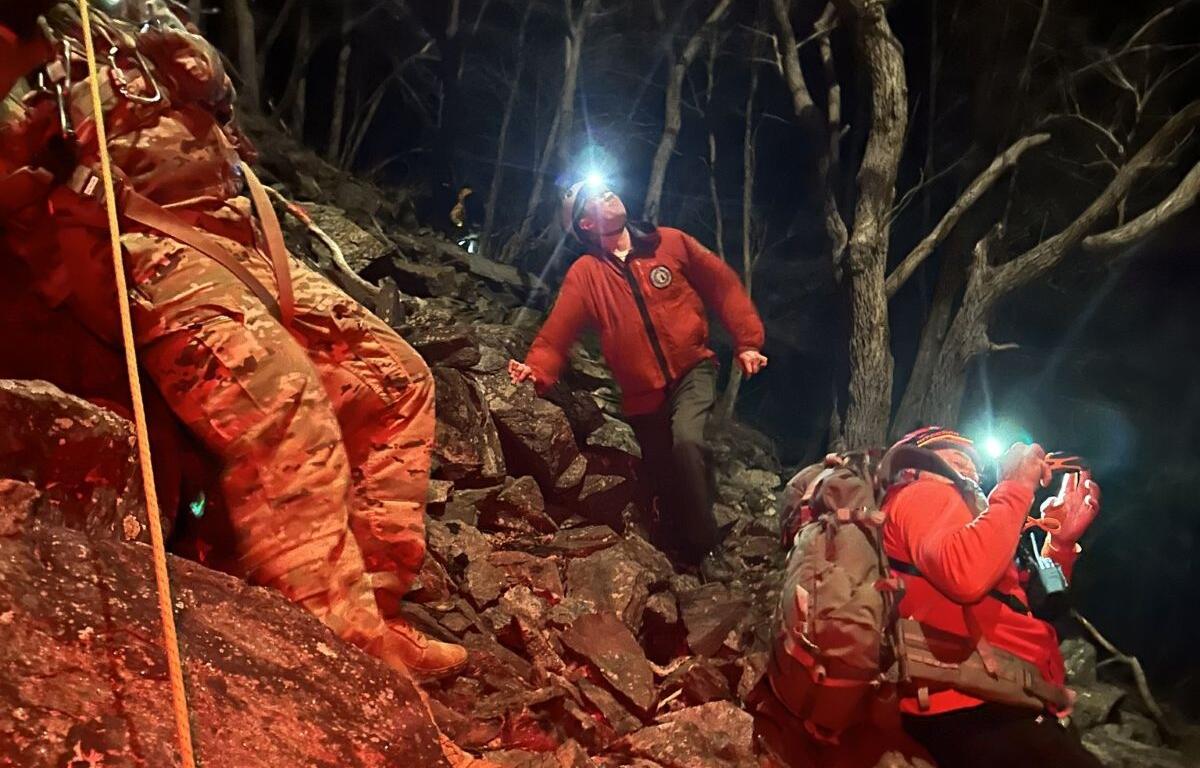WALPOLE, N.H. (MyKeeneNow) A high-stakes, multi-agency rescue effort unfolded on Mount Kilburn Tuesday evening after an 18-year-old hiker from Bellows Falls, Vermont, fell approximately 30 feet from a ledge near the Table Rock Overlook.
The hiker, Thierry Salter-Dimma, was injured and stranded on a steep cliffside when emergency responders received the alert around 6:20 p.m. According to officials, Salter-Dimma’s father initially reported the fall, and the teenager was briefly able to call 911 himself before his phone died—though not before GPS data pinpointed his approximate location.
Responders faced difficult terrain and fading daylight as they launched a full-scale rescue operation. A DHART helicopter and drone surveillance from Rockingham Recon Aerial Services were dispatched to help locate the injured hiker, but steep, unstable slopes complicated access on foot.
By 8:10 p.m., a Fish and Game Conservation Officer had reached Salter-Dimma by climbing down treacherous cliffs, providing first aid and assessing the scene. The situation prompted a rare helicopter hoist rescue request to the New Hampshire Army National Guard, which was already in the area conducting training exercises.
Meanwhile, members of the Upper Valley Wilderness Response Team (UVWRT)—familiar with the rocky terrain due to recreational climbing—navigated a trail from the base of the mountain to assist with the ground evacuation. They arrived just as the National Guard helicopter hovered overhead.
Dense tree cover forced rescuers to carry Salter-Dimma about 150 feet to a clearing where the helicopter could safely lift him out. He was flown to Dartmouth Hitchcock Medical Center around 10:45 p.m.
Responding agencies included multiple fire departments from both sides of the Connecticut River, police, EMS, wilderness rescue specialists, and military air support—a testament to the severity and complexity of the mission.
New Hampshire Fish and Game officials are using the incident as a reminder for hikers to always be prepared, even on short trips. They recommend carrying a full set of essentials, including navigation tools, extra food and clothing, and emergency supplies. More safety information is available at hikesafe.com.




